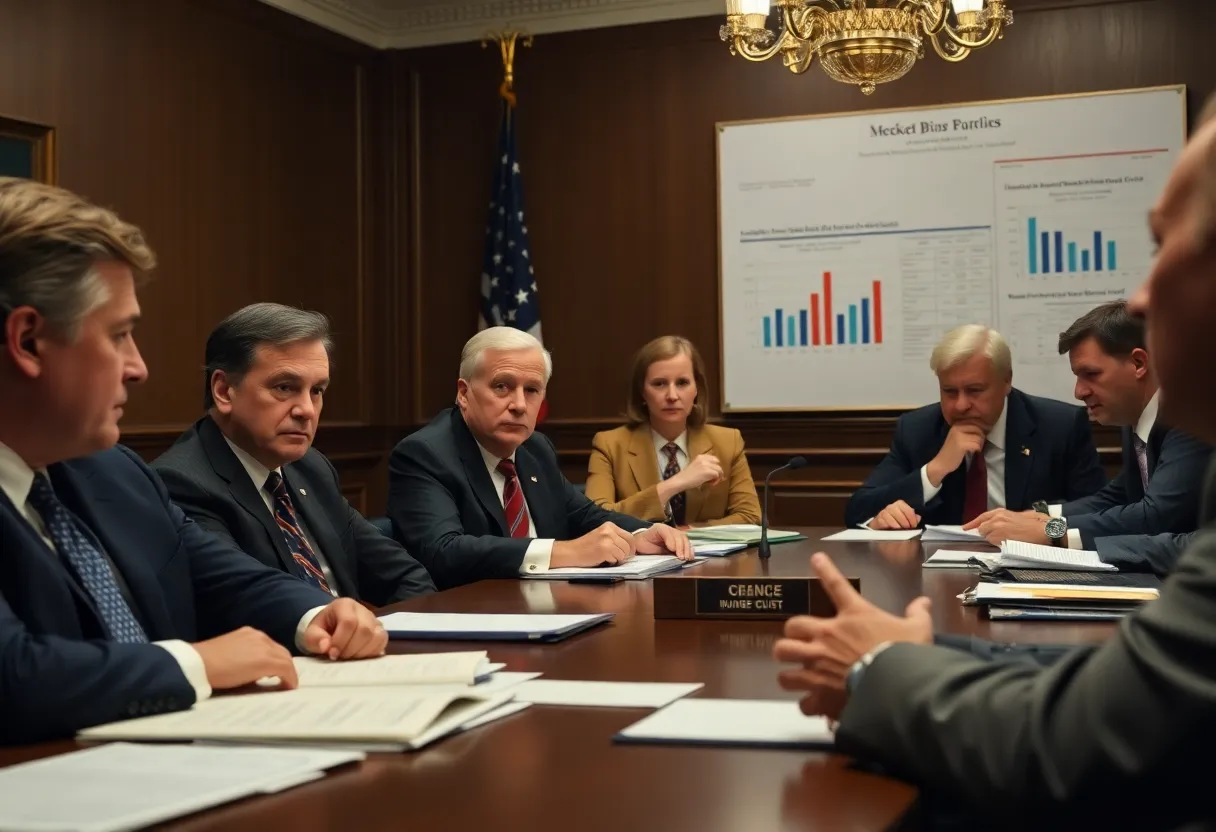News Summary
House Republicans are grappling with internal divisions regarding proposed Medicaid cuts amid a $880 billion budget resolution. Some members fear these cuts could jeopardize the GOP’s electoral prospects in upcoming midterms, as voter backlash grows in districts reliant on Medicaid services. Despite reassurances from GOP leaders about only targeting waste and fraud, skepticism remains about the impact of such cuts on low-income Americans. Negotiations continue, raising concerns about the potential fallout for hospitals and essential health services, with imminent decisions at stake for the Republican majority.
House Republicans in a Tangle Over Medicaid Cuts
There’s quite a stir among House Republicans as they face some serious internal divisions about proposed cuts to Medicaid. The pressure is on with a hefty $880 billion budget resolution on the table, and not everyone is on board with the direction it’s heading.
Concerns from Within the Ranks
Republican representatives, including Jeff Van Drew from New Jersey, are sounding the alarm, highlighting a potential fallout that could seriously damage the party’s standing at the polls. Van Drew pointed out that if Medicaid cuts are made, it could cost the GOP dearly in upcoming elections, suggesting that they risk losing control of Congress. Despite these concerns, Van Drew and most of his fellow Republicans pressed forward, voting to advance the budget resolution that President Trump has dubbed their “big, beautiful bill.”
The Budget’s Heavy Hit on Medicaid
While Trump and GOP leaders assure that they won’t touch Medicaid benefits outright, they claim they’ll target waste and fraud instead. However, experts are questioning how they can achieve significant cuts without making substantial changes to a program that many Americans rely on. As it stands, the proposed resolution seeks to impose $880 billion in cuts largely affecting Medicaid and Medicare, with bipartisan leaders pledging to protect Medicare—leaving Medicaid as the main target for possible reductions.
A Tightrope Walk for Republicans
This predicament has left many Republican lawmakers feeling trapped. They’re caught between party loyalty and the needs of their constituents, particularly in areas where families heavily depend on Medicaid services. As the budget debate rages on, some Republicans are firmly stating that they can’t back any final proposal that cuts the program.
The Stakes for Upcoming Elections
With 2026 midterms looming, Democratic lawmakers are quick to use the threat of Medicaid cuts as a political weapon. They’re framing the issue as one where the GOP is sacrificing working families for the sake of tax cuts benefiting the wealthy. The messaging is clear: cuts to Medicaid could alienate voters in swing districts, putting many Republican incumbents on shaky ground.
Unexpected Alliances and Diverging Opinions
As the budget resolution squeaked through with a narrow margin of 217-215, it became evident that not all Republicans are in agreement. Even within the party, there’s skepticism about the proposed cuts to Medicaid. Some members, like Tony Gonzales from Texas, are vocal in their wishes to shield Medicaid from reductions and have been actively discussing their apprehensions with the leadership.
Potential Solutions and Repercussions
In exploring ways to trim Medicaid spending, some Republicans are considering stricter work requirements as a potential fix. This measure has found a few endorsements among some senators, indicating a politically palatable route for addressing budget concerns. Yet, this approach has drawn its share of critiques regarding how it might adversely impact low-income Americans who depend on vital services.
The Bigger Picture
The stakes couldn’t be higher, especially as estimates suggest that cuts to Medicaid could lead to massive financial losses for hospitals and critical health services. For states like New Jersey, the anticipated fallout could reach billions in federal funding losses. Local analyses indicate that Medicaid cuts could potentially range from $2.2 billion to $5.2 billion, profoundly altering the health care landscape and the services available to those who need them most.
The Road Ahead
As the negotiations continue, the GOP’s internal struggles over the budget may complicate their legislative agenda moving forward. If resolution isn’t reached, the party faces the grim possibility of a government shutdown, leaving constituents in limbo. And as Democrats gear up for the electoral battle, the potential damage inflicted on Medicaid may very well turn into a rallying cry for opposition campaigns aiming to unseat Republican incumbents.
With all these moving parts, the coming weeks will be crucial as lawmakers navigate what could be one of the most contentious budget discussions in recent memory. Keep your eyes peeled, as the fate of Medicaid—and perhaps the Republican majority—hangs in the balance.
Deeper Dive: News & Info About This Topic
- The Washington Post: House Republicans in a Tangle Over Medicaid Cuts
- New Jersey Globe: N.J. House Republicans Fall in Line on Critical Budget Vote
- Time Magazine: Jeff Van Drew on Trump’s Republican Budget Bill and Medicaid Cuts
- Wikipedia: Health Care in the United States
- Encyclopedia Britannica: Medicaid







